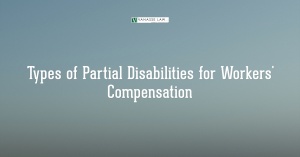Need Immediate help? Call 717-397-1010
After Hours Call / Text 717-471-2168
Need Immediate help? Call 717-397-1010
After Hours Call / Text 717-471-2168

There is a lot to be said for engaging in work that fills us with pride and a sense of fulfillment. How often do we hear about lottery winners who insist that they are not going to leave their job because of the sense of purpose that it provides to them. This type of work environment is what we all hope and strive for, but is unfortunately not what we all have. There are many situations where our jobs fill us with stress and worry, and this can lead to both mental and physical issues. When a physical or psychological condition develops as a result of job-related stress, the costs can be very real: workers may need time off, may incur medical expense, and may even be unable to return to the work environment. Workers’ compensation provides coverage for both physical injuries and mental injuries that are caused by job-related stress, and the Lancaster law firm of Vanasse Law can help you get the benefits that you need.
When it comes to stress and workers’ compensation, there are a few different categories of injuries for which you can claim benefits. These are:
Though the first category cited here, a physical situation that creates a mental injury, is often the easiest type of job-related stress injury to prove, all three situations represent valid workers’ compensation claims that a qualified and experienced workers’ compensation attorney can help you with. Though employers and their insurance companies often initially reject a claim for workers’ compensation benefits for job-related stress, the workers’ compensation board and the Pennsylvania Supreme Court have both found in favor of employees in many of these cases, acknowledging that stress can have a very real and debilitating impact on a person’s physical and mental health that often interferes with their ability to perform their job responsibilities.
If you are an employee who has suffered as a result of work-related stress, you are not alone. Contact the compassionate attorneys at Vanasse Law to learn more about your rights and how we can help you get the compensation that you deserve.

As an employee, your focus on the job goes far beyond the hours when you are in your work environment. You think about your responsibilities from the time that you start getting ready in the morning and you rehash the day’s skirmishes hours past the time that you leave. But is your employer’s responsibility to you as all-consuming as your focus on them is? Not necessarily. A good example is the issue of traveling to work and workers’ compensation. Workers’ compensation is a no-fault insurance policy that your employer provides to pay for any injury or illness that you suffer while on the job – but there are only a few situations where your company’s insurance will cover you if you are injured while traveling to or from work. Here is some basic information on traveling to work and workers’ compensation that may answer some of your initial questions. If you have been in an accident or suffered some kind of injury while traveling to work, the experienced workers’ compensation attorneys at Vanasse Law can help you with your specific questions and situation.
In most situations, workers’ compensation does not cover injuries that an employee suffers while on the way to or from work. Though an employee may think of their commuting time as being part of their job, from a legal and insurance perspective it is not. There are, however, certain scenarios that may entitle a worker who is injured while traveling to work to file a workers’ compensation claim. These include
When it comes to being injured while on the way to or from work, every situation is unique and requires analysis by an experienced and knowledgeable workers’ compensation attorney. The attorneys at the Lancaster law firm of Vanasse Law have an extensive record of helping those who have been injured on the job to understand their rights and get the compensation that they deserve. Call us today to set up an appointment to discuss your case.

Whether you’ve only worked for your company for a short period of time or have been with the same employer for dozens of years, you are probably covered by their workers’ compensation insurance. Workers’ compensation is an insurance policy that provides employees that are injured or sickened on the job with a way to be compensated for their medical expenses and lost wages without having to file a personal injury lawsuit against their employer. It also provides their employer with protection against that type of liability claim. Though the system was designed to decrease animosity, filing a workers’ compensation claim can, unfortunately, become an adversarial process. Having an experienced workers’ compensation attorney acting on your behalf is a good way of making sure that you are doing all the right things and have the best chance of getting the compensation you deserve. It is also a good idea to familiarize yourself with the basic guidelines of workers’ compensation provided here, but if you need assistance, contact the attorneys at Vanasse Law today.
With a few exceptions, the state of Pennsylvania requires employers to carry workers’ compensation so that they can cover the costs of your medical expenses and lost wages. If you suffer an injury or are diagnosed with a work-related condition or illness, you need to give your employer notice within 120 days, though it is a good idea to let them know sooner than that.
Once you have informed your employer of the problem, they have a responsibility to file a ‘first report of injury’ with the Pennsylvania Bureau of Workers Compensation’. In the meantime, you should seek medical treatment for your injury. In some cases, your employer may have a list of at least six health care providers for you to see; if they do have this list and you have signed a document showing that you have been provided with it, then you are required to see one of those professionals for the first 90 days after your injury. After that, you can seek treatment from whoever you would like.
Your employer or their insurance company can choose either to approve your claim or deny it. If you receive a denial, you are able to file an appeal. It is strongly recommended that if this is the case, you have an experienced Pennsylvania workers’ compensation lawyer working on your behalf and representing you throughout the process. Your company is very likely to have an attorney representing them, and the process can be confusing, complex, and intimidating. Additionally, a workers’ compensation attorney may be able to identify others who can be held responsible for your injury, making it possible for you to file a third-party claim against them and get greater compensation for the damages that you have suffered.
Workers’ compensation benefits provide you with much-needed compensation for your medical expenses, as well as a way to minimize the loss of wages that you may experience as a result of your injury. Let the knowledgeable workers’ compensation attorneys from the Lancaster firm of Vanasse Law help you to get the benefits that you deserve.

Workers’ compensation is a no-fault insurance policy that ensures that employees who are injured or made sick on the job receive compensation for their medical care, as well as for the wages that they may lose as a result of their medical condition. In some cases, an employee’s injury may preclude them from being able to return to their original work responsibilities, but they may be able to take on another role at the same company. When this happens and the wages for the new role are lower than what the employee was originally received, the employee may be eligible to receive a benefit known as “partial disability”. Partial disability is frequently part of an order by a judge or an agreement that has been reached as part of an injured worker’s agreement with their employer. For assistance with filing for partial disability or to make sure that you receive the amount that you deserve, contact the Lancaster law firm of Vanasse Law today.
Partial disability benefits are not offered permanently. The amount of time that an injured worker is able to receive them is limited to a maximum of 500 weeks. It is important to know that this time period does not need to be uninterrupted: the payments can go on for a period of time longer than the nearly ten years that 500 weeks would represent if they were taken consecutively. Partial disability is designed to help make up for the loss of earning capacity caused by the injury or illness that took place on the job. It is calculated at a rate of 2/3 of the difference between the employee’s original average weekly wage and the wage that they will be paid for their new role.
In addition to those benefits, there are other specific payments that can be provided to employees based on the type of injury that they have suffered on the job. These include:
For assistance in applying for any of these types of workers’ compensation benefits or for help in filing a claim, contact the Pennsylvania law firm of Vanasse Law today.

Work does more than pay the bills and put food on the table. For many of us, the work we do provides real meaning and rewards. When we suffer a serious injury on the job, it not only has a physical impact but can also create uncertainty. This is especially true when the injury requires expensive medical treatment or keeps us from returning to work. If you have suffered an injury in your workplace or have become sickened or developed a condition as a result of your job, then you may be entitled to file a claim for workers’ compensation benefits. These benefits can not only reimburse you for the cost of your treatment and care, but also provide a percentage of any wages that you lose as a result of your injury and the corresponding period of recovery. In Pennsylvania, there is a specific workers’ compensation process that you need to follow in order to give yourself the best chance of getting the benefits that you deserve. The experienced workers’ compensation attorneys at Vanasse Law can explain what you need to do and assist you in the process to ensure that you get the compensation that you need and deserve.
The first step of the workers’ compensation process is to file your initial claim. This must be submitted to your employer within 21 days of your injury, or your discovery of the work-related condition if you want to receive benefits after missing work for seven days or more. Doing this properly is essential. Your statement to your supervisor, Human Resources department, or other responsible representatives should include the date of the injury, how and where the accident occurred, and what its physical impact or diagnosis is. If you do not file a claim within 120 days of the injury then you risk forfeiting your right to benefits entirely.
Once you’ve submitted the claim it is likely that you will need to provide complete documentation of your injury and any bills you incur. Your employer may require you to be seen by specifically approved physicians, whose names they will make available to you. It is important that you adhere to all medical advice and keep track of all appointments, as this may assist you in an appeal at a later date.
Once you have submitted your claim your employer will report it to the state Bureau of Workers’ Compensation. They will review your claim and either decide to provide you with compensation or issue a denial of benefits. If you receive a denial of benefits then you have the right to appeal this decision.
Though there is no requirement that you have legal representation when submitting a workers’ compensation claim or appeal, it is strongly suggested that you do. Your employer or their insurance company will have experienced legal counsel working on their behalf, and you will need a strong and knowledgeable advocate fighting for the benefits you deserve. Call the attorneys at Vanasse Law today to learn more about how we will work for you.

If you’ve suffered a significant injury in the workplace and have filed a workers’ compensation claim, there’s a good chance that your employer or their insurance company will offer you a specific lump sum of money in exchange for waiving your right to continue receiving weekly benefits or seeking any further compensation in the future. These settlement amounts frequently represent tempting amounts of money in the eyes of a worker who is facing mounting medical bills and uncertainty about their ability to return to work in the future. It is important that you give careful consideration before agreeing to this type of settlement, as once you’ve signed off on the agreement there will be no going back. The workers’ compensation attorneys at the Lancaster law firm of Vanasse Law are available to review the terms of the settlement and provide you with valuable advice as to whether the offer you’ve received is fair, or whether you deserve more compensation and should continue to fight for your rights.
When you meet with a Pennsylvania workers’ compensation attorney from the law firm of Vanasse Law, you will get the benefit of our extensive legal knowledge as well as our experience. We will review the particulars of your injury, the medical treatments that you have already required as well as the long-term expectations for whether your health will improve, whether you will continue to need treatments for an extended period of time, and whether you will be able to return to work. We will also carefully evaluate your financial situation, analyzing whether other sources of income such as Social Security Disability or Medicare will be enough to replace your income should you be permanently disabled. You should never agree to a workers’ compensation lump-sum settlement without this type of careful review by a qualified attorney.
A workers’ compensation attorney will review the settlement offer made by your employer or their insurance company with very specific issues in mind. They will consider how much money you were making prior to your injury and how long you worked for your employer. They will look at the position that you held, as well as your age, the number of years that you would have expected to earn an income had you not been injured, the exact medical condition that you suffered and what kind of expenses you can expect to incur in the future as you continue to be treated for it.
The recommendations that we make will be based on your particular situation as well as on the settlements and benefits that constitute the norm for situations that are similar to yours. It is in our extensive experience in negotiating workers’ compensation agreements that you will find our greatest value, as we are committed to ensuring that you receive a fair and reasonable compensation payment, and we know exactly what that should be. To set up an appointment to discuss your case, contact our office today.

You’ve been hurt at work. Maybe you were involved in a serious and obvious accident. Maybe what happened to you wasn’t as obvious and you have been identified with a repetitive stress injury as a result of your job, or a cumulative occupational disease that was caused by exposure to a toxin in your workplace environment. Whether illness or injury, if it happened at work you may be entitled to workers’ compensation benefits such as compensation for your medical expenses and any wages you lose as a result. Though workers’ compensation is extended to almost all Pennsylvania workers, as the injured party you have certain requirements that you must meet in order to get the benefits you seek. The experienced workers’ compensation lawyers at Vanasse Law have a long and successful record of assisting injured workers, and we can help you too.
If you have been in an accident and are suffering from symptoms, the most important thing for you to do is seek medical attention. If your physician identifies an illness that arose from your workplace, or you’ve been treated for an injury you suffered at work, then you need to report it to your employer immediately and in writing. Doing so sets into motion a series of events that lead to you getting the reimbursement you will need for the medical expenses you incur. Your employer may have a specific form that you need to fill out or may have a requirement for who is to receive notice of your situation.
Pennsylvania law makes you responsible for giving your employer notification within 21 days of either your injury taking place or of you learning of your illness or injury. In some situations, they will allow up to 120 days for this notice. Your report may be submitted to the human resources department or your manager or supervisor. Once you submit a claim your employer has to send a notification to the Bureau of Workers’ Compensation. The employer may ask that you see one of the several physicians that they have specifically identified for treatment of employees seeking workers’ compensation, and you may need to see those physicians for a minimum period of time. Though it may feel as if there are a lot of rules and regulations, it is important to adhere to the guidelines established by Pennsylvania law. Failure to follow these protocols can result in your forfeiting your ability to get the reimbursement to which you are entitled.
Workers’ compensation can provide a wide range of benefits, including reimbursement for medical expenses, lost wages, and short or long-term disability payments. Though an injured worker is not able to file a personal injury lawsuit against their employer, they still maintain the right to hold others responsible if there has been negligence involved in their injury. This can include other contractors in the worksite, as well as other third parties.
If you have questions about your rights or have been turned down for compensation that you believe you deserve, the experienced Lancaster attorneys at Vanasse Law can help. Call us today to set up a convenient appointment.

In the state of Pennsylvania, when you have suffered an injury or illness at work you are generally entitled to workers’ compensation. This benefit provides reimbursement for medical expenses, as well as a portion of the salary that you lose as a result of having to spend time out of work for recuperation and recovery. In some instances, the Pennsylvania Workers’ Compensation Act has established very specific compensation amounts based on suffering particular losses. Among these pre-established specific losses, awards are those that have been set aside for the loss of a body part. If you have been injured and work and it has resulted in the loss of a limb, workers’ compensation will not be able to fully reimburse you for your disability: but the state has recognized the change that this type of injury represents, and as a result, it has offered these values so that people will not need to argue or fight the insurance companies. The Lancaster law firm of Vanasse Law has successfully represented many workers who have suffered this type of injury, ensuring that they get the benefits to which they are entitled.
If you have suffered the loss of a limb or body part, workers’ compensation provides for both a healing period and an additional number of weeks that they will pay benefits. For that time period, you will receive a weekly check that represents a percentage of what your average weekly wage was at the time of the injury. The time periods are shown here:
Body Part Lost Healing Period (weeks) Benefits Paid (weeks)
Hand 20 335
Forearm 20 370
Arm 20 410
Foot 25 250
Lower Leg 25 350
Leg 25 410
Thumb 10 100
First Finger 6 50
Second Finger 6 40
Third Finger 6 30
Fourth Finger 6 28
Big Toe 12 40
Other Toes 6 16
There are both advantages and disadvantages to these pre-established benefits having been created by the state. If you have suffered one of these losses and feel that you have recovered enough to return to your work responsibilities in a time period shorter than the period that the state provides, you are still able to receive the loss of body part benefit, even if you have returned to work. However, by contrast, if you have been severely harmed and do not feel ready to return to work after the compensation period ends, your employer is able to cite the maximum time period and stop making payments.
Losing a limb can be both physically damaging and emotionally traumatic, and if it has happened to you then you are entitled to workers’ compensation benefits. You also may be able to pursue other responsible parties beyond your employer. The attorneys at Vanasse Law are experienced, compassionate workers’ compensation lawyers who are able to help you explore all of your options. Contact us today to learn more.

Though many people would assume that people who work in settings such as construction sites or manufacturing facilities are at the highest risk for worksite accidents, the truth is that it is the people who work in the healthcare and social assistance industry that are exposed to the most serious safety and health hazards. Though some of their risks come from illness, there is also a high risk for healthcare workers to be involved in workers’ compensation accidents for which they need to seek benefits. If you are a healthcare worker who has been injured on the job and you need assistance in preparing a workers’ compensation claim, or need information on your rights, contact the Lancaster law firm of Vanasse Law. We have the experience and knowledge that you need.
The range of accidents that healthcare workers are at risk of experiencing is broad, and much of it depends upon the environment in which they work. Healthcare workers can be found in hospitals and clinics, dental offices and laboratories, emergency medical care offices, nursing homes, and individual patient homes, among other locations. They face exposure to pathogens and biological hazards, chemical and drug exposures, ergonomic hazards from repetitive tasks or lifting heavy objects or patients, and exposure from materials in laboratories or x-ray equipment.
According to the Occupational Safety and Health Administration (OSHA), hospitals are actually one of the most hazardous places to work, with an average of nearly 60,000 work-related injuries and illnesses in a year. Musculoskeletal injuries are extremely prevalent, and out of all the different types of healthcare workers, it is most commonly seen in nursing aides, attendants, and orderlies who are responsible for lifting, repositioning, and transferring patients who have limited mobility. But in addition to medical staff, healthcare workers include housekeeping, food service employees, building and maintenance staff, and administrative staff. There are unique risks involved in working in healthcare, where employees are generally dedicated to the health and safety of others over their own and may be required to respond to unpredictable events quickly. There is a risk of everything from an accidental needle stick to a violent outburst from a patient.
Of all the injuries suffered by healthcare workers in workplace accidents, the most common cause is overexertion and bodily reaction. These generally involve lifting, bending, or reaching. Second to those injuries are sprains and strains, which ended up resulting in the highest dollar workers’ compensation claims. Others include fractures, trauma, and cuts and punctures.
If you are a healthcare worker who has been injured on the job and you believe that you are entitled to workers’ compensation, the Lancaster law firm of Vanasse Law can help. We have extensive experience in helping successfully apply for and win workers’ compensation benefits, and we are ready to provide you with the assistance that you need.
 Workers’ compensation is a form of no-fault insurance that became law in Pennsylvania over 100 years ago. It provides a safety net for workers who are injured on the job while assuring employers that they won’t be vulnerable to personal injury lawsuits. It provides compensation for medical expenses, as well as partial coverage for wages lost while out of work due to the injury, and as such it is an important benefit – yet one that few workers give any thought to until they are injured and actually need it. At Vanasse Law, we are here to help answer any questions you may have about your rights under workers’ compensation law and to give you the answer to common workers’ compensation concerns. Here are answers to some of the questions we hear most frequently from people who have been injured in the workplace.
Workers’ compensation is a form of no-fault insurance that became law in Pennsylvania over 100 years ago. It provides a safety net for workers who are injured on the job while assuring employers that they won’t be vulnerable to personal injury lawsuits. It provides compensation for medical expenses, as well as partial coverage for wages lost while out of work due to the injury, and as such it is an important benefit – yet one that few workers give any thought to until they are injured and actually need it. At Vanasse Law, we are here to help answer any questions you may have about your rights under workers’ compensation law and to give you the answer to common workers’ compensation concerns. Here are answers to some of the questions we hear most frequently from people who have been injured in the workplace.
I hurt myself at work and told my boss. He says I have to see one of the doctors on the company’s list of approved physicians. Is that true? Why can’t I see my own specialist?
Pennsylvania’s workers’ compensation law requires you to see a company doctor in certain circumstances – they have to have a list of at least six health care providers for you to choose from, they have to give written notification of the existence of this list, and have your written acknowledgment of having received this list. If all of these are in place then you have to see one of those doctors for 90 days from the time of the first visit.
How long does workers’ compensation last?
If you are receiving total disability wage loss benefits, there is no limit to how long you can receive payments. If you are receiving partial disability wage loss benefits, the maximum duration is 500 weeks, or just shy of ten years.
I have been receiving workers’ compensation and have been working desk work, but have not been able to return to my full-time job. Now my supervisor says I have to come back or resign. Can they do that?
No. If your physician says that you are still restricted to light duty then you have a right to continue doing so. Do not quit! If they lay you off you can still receive your workers’ compensation wage loss benefits.
I had a heart attack that my doctor says was caused by stress at work. Can I file for workers’ compensation?
It is possible to get workers’ compensation wages following a heart attack if your physician provides evidence that it was a result of the workplace environment. The attorneys at Vanasse Law can assist you in preparing and providing evidence of this claim.
My Human Resources department wants to send the company nurse to my appointments with my doctor. Can I refuse this?
You can’t stop them from going to the appointment, but you can say that they are not permitted in for the examination and you can tell the doctor that you do not want them talking to the nurse. If you have previously signed an authorization permitting your doctor to discuss your condition with a work representative, then you can withdraw that authorization.
As these questions show, Pennsylvania’s workers’ compensation laws are complex and often difficult to understand. If you have suffered a workplace injury, the attorneys at Vanasse Law are ready to provide you with the answers and explanation you need and the legal representation that will get you the compensation you need and deserve.